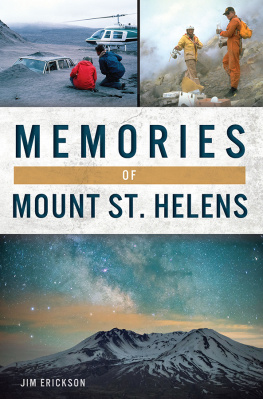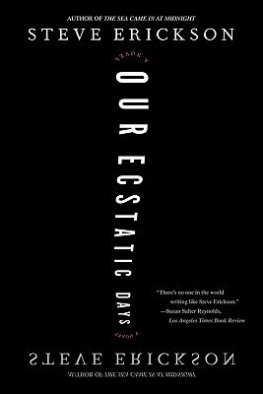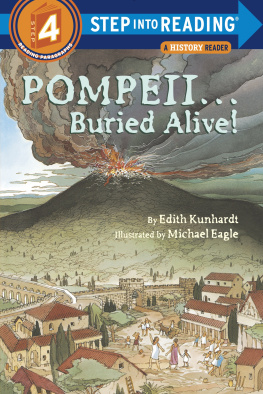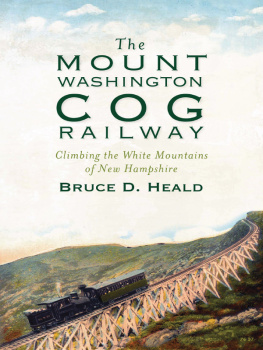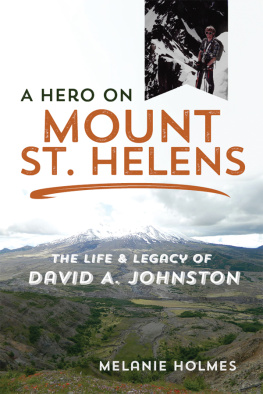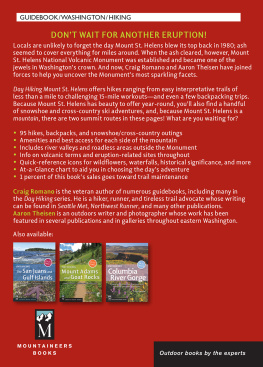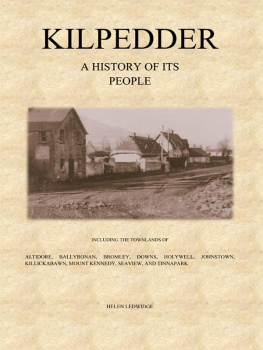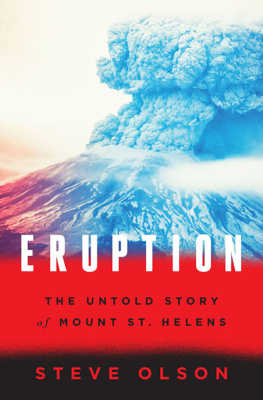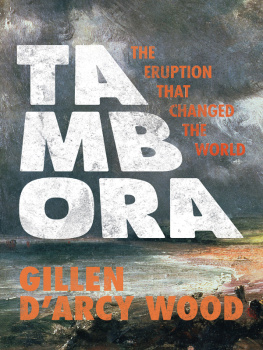Jim Erickson - Memories of Mount St. Helens
Here you can read online Jim Erickson - Memories of Mount St. Helens full text of the book (entire story) in english for free. Download pdf and epub, get meaning, cover and reviews about this ebook. year: 2020, publisher: Arcadia Publishing, genre: Detective and thriller. Description of the work, (preface) as well as reviews are available. Best literature library LitArk.com created for fans of good reading and offers a wide selection of genres:
Romance novel
Science fiction
Adventure
Detective
Science
History
Home and family
Prose
Art
Politics
Computer
Non-fiction
Religion
Business
Children
Humor
Choose a favorite category and find really read worthwhile books. Enjoy immersion in the world of imagination, feel the emotions of the characters or learn something new for yourself, make an fascinating discovery.
- Book:Memories of Mount St. Helens
- Author:
- Publisher:Arcadia Publishing
- Genre:
- Year:2020
- Rating:4 / 5
- Favourites:Add to favourites
- Your mark:
- 80
- 1
- 2
- 3
- 4
- 5
Memories of Mount St. Helens: summary, description and annotation
We offer to read an annotation, description, summary or preface (depends on what the author of the book "Memories of Mount St. Helens" wrote himself). If you haven't found the necessary information about the book — write in the comments, we will try to find it.
Takes a local and regional perspective in looking back on the mountains history, the frenzied days surrounding the eruption, and its aftermath. The Oregonian
Memories of Mount St. Helens — read online for free the complete book (whole text) full work
Below is the text of the book, divided by pages. System saving the place of the last page read, allows you to conveniently read the book "Memories of Mount St. Helens" online for free, without having to search again every time where you left off. Put a bookmark, and you can go to the page where you finished reading at any time.
Font size:
Interval:
Bookmark:


Published by The History Press
Charleston, SC
www.historypress.com
Copyright 2020 by Jim Erickson
All rights reserved
Front cover, bottom: Night shot of Mount St. Helens from David Johnston Observatory. Gregg M. Erickson photo.
First published 2020
E-book edition 2020
ISBN 978.1.43966.949.5
Library of Congress Control Number: 2019954294
print edition ISBN 978.1.46714.501.5
Notice: The information in this book is true and complete to the best of our knowledge. It is offered without guarantee on the part of the author or The History Press. The author and The History Press disclaim all liability in connection with the use of this book.
All rights reserved. No part of this book may be reproduced or transmitted in any form whatsoever without prior written permission from the publisher except in the case of brief quotations embodied in critical articles and reviews.
Dedicated to my wife, Pam, and sons, Keith and Gregg,
for their love, support and inspiration.
CONTENTS
PREFACE
In late 2018, I entertained the notion of writing a book about Mount St. Helens, the biggest story I covered in my career as a journalist. I had visions of what it would contain: I would present my memories and accounts of the stories I wrote. I would ask a colleague, Kerry Webster, to offer his thoughts and memories about his stories. Webster willingly accepted. I would contact people who were still alive to bring their stories up to date. I did that by reaching key individuals, including Carolyn Driedger of the U.S. Geological Survey; Shirley Rosen, the niece of Harry Truman who died at his lodge on Spirit Lake; Virginia Dale, noted botanist who has studied the plant life coming back to a stark landscape; Dick Ford, the Weyerhaeuser forester who was the hero of reforestation of the volcano; and others. One of those others was especially important, namely, former president Jimmy Carter.
In January 2019, I began reading clips of my stories from the Tacoma News Tribune, as well as other volcano articles from the Oregonian and the Columbian, the only newspapers I had access to during the weeks I spent in Vancouver, Washington, with geologists. In February, I wrote a letter to President Carter in Plains, Georgia, including a copy of my story about his visit to the volcano to establish my credibility. My request was for his memories. After a month and a half, Carter did respond, giving me permission to use his diary entry for the day of his 1980 visit. I was elated. It inspired me to contact all the other people I interviewed for my book. I collected photos to augment the book and was pleased when The History Press accepted my proposal.
But why write the book at all? Maybe this account of a meeting I initiated with Tacoma News Tribune editor Don Pugnetti will shed some light on my objective. In late 1980, I suggested that the newspaper should figure out a way to be nominated for a Pulitzer Prize for what I thought was incredible Mount St. Helens coverage. Pugnetti and I examined the potential categories and determined the only possibility was Local News. Unfortunately, the story was more local to the Longview Daily News, located in a city in closer proximity to the volcano than us. We backed off. Do you know who won the Pulitzer? The Longview Daily News. And deservedly so. We did enter our volcano stories in the Sigma Delta Chi (now called the Society of Professional Journalists) Northwest competition and won a first-place award. We felt vindicated somewhat. Kerry Webster and I were featured in a photo on the Tacoma News Tribunes front page announcing the award because most of the volcano stories were written by us.
Nows the right time, forty years later. Thats a long period in a human life but merely a blink of an eye geologically for the earth and volcanoes like Mount St. Helens. Its a good story that needs to be told.
Jim Erickson
September 2019
ACKNOWLEDGEMENTS
Throughout my life, I have been interested in the outdoors, even longing for the chance, while living my youth in North Dakota, to visit the mountains I could see to the west in Montana. There have been so many people who inspired me to study natural science in college. In retrospect, it seems like it was a good fit with my journalism degree, helping me to communicate with earth scientists and translate their words and studies into palatable news stories for readers. That said, it is important to focus on those people who helped me along the way on the journey toward writing this book.
I am particularly in debt to Bob Lane, a colleague at the Tacoma News Tribune and a friend, for his constant prodding to write something every day. Kudos to Virginia Lane, Bobs wife, a fantastic editor who looked at my first drafts and provided essential insight.
I am grateful to Don Pugnetti, editor of the Tacoma News Tribune, and to the newspaper, as well, for allowing me to cover Mount St. Helens, the most important story of my life. Thanks, also, to Kerry Webster, a fellow news reporter, for his memories. I am also thankful for the many volcano assignments on which I could team with photographer Bob Rudsit.
Of course, there are the many people I interviewed in 1980. Some have died. I am appreciative for having known and talked to them. I also give thanks to those people who gave me the opportunity to interview them again for this book. My list is as follows: Harry Truman, Shirley Rosen, David Johnston, Jack Hyde, Carolyn Driedger, A.B. Adams, Virginia Dale, Wendy Adams, Al Eggers, Ryan OJerio and Dick Ford. They are the characters who make this story live on.
Thanks go to the Weyerhaeuser Company for flying me, Rudsit and Pugnetti into the area where salvaging was going on.
I am grateful to my son Keith for taking me to interview sessions with Carolyn Driedger, Shirley Rosen and Dick Ford. Thanks also for his photo of me with Mount St. Helens in the background.
I am also appreciative of my son Gregg for his photos of the dark sky at Mount St. Helens and his incredible panorama from the volcanos summit. Also, thanks for his photo of himself and Keith from the summit.
Thanks to the Cowlitz County Historical Society and Museum for information and a photo of the first Tower Bridge.
Thanks to Tom Lineham for his encouragement and support.
INTRODUCTION
A sacred mountain, beautiful and symmetrical, compared to Mount Fujiyama in Japan. Off limits to Native Americans who were tradition-bound to not venture above the tree line on this mountain that they called Loo-Wit. It had the reputation of being a smoking, fire-emitting volcano that drew people to it like a magnet. In the mid-1840s, that included Canadian artist Paul Kane, who painted an eruption that was remarkable. Explorers and mountaineers were attracted to Mount St. Helens, too. Put myself in the latter category, having climbed the volcano before it erupted in 1980. Thus, the stage has been set for a drama to play out, and there are lots of characters.
Carolyn Driedger, an accomplished geologist whom I call a friend, is alive today because of a warning she got the day before the mountain exploded on May 18.
Shirley Rosen is older today than her unclethe eccentric but lovable Harry Truman, who operated a lodge at Spirit Lake and stayed there and died therewas at the time of his death. She has a lifetime of stories, as well as an interesting career made possible because of her book about Truman.
Next pageFont size:
Interval:
Bookmark:
Similar books «Memories of Mount St. Helens»
Look at similar books to Memories of Mount St. Helens. We have selected literature similar in name and meaning in the hope of providing readers with more options to find new, interesting, not yet read works.
Discussion, reviews of the book Memories of Mount St. Helens and just readers' own opinions. Leave your comments, write what you think about the work, its meaning or the main characters. Specify what exactly you liked and what you didn't like, and why you think so.

